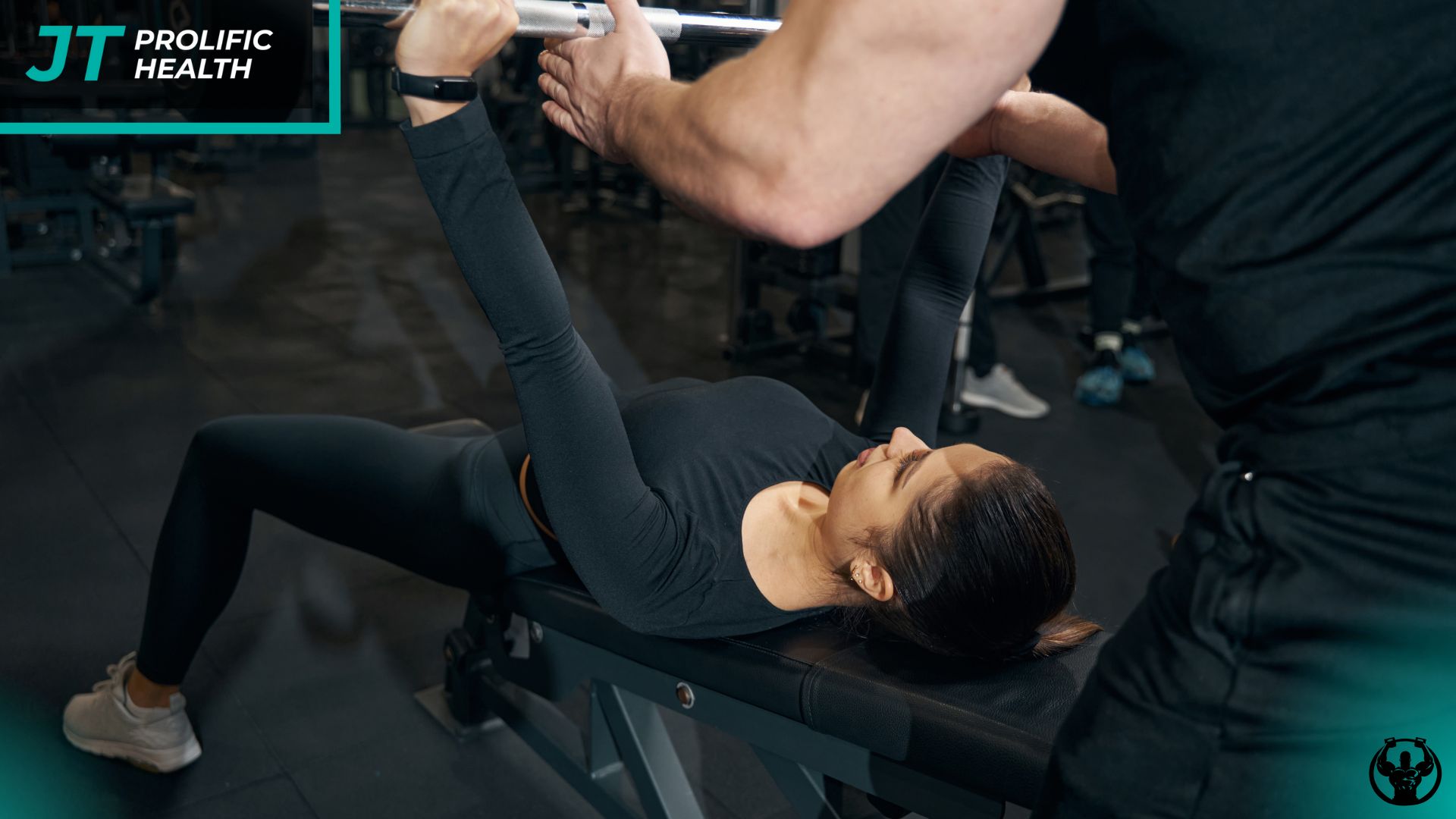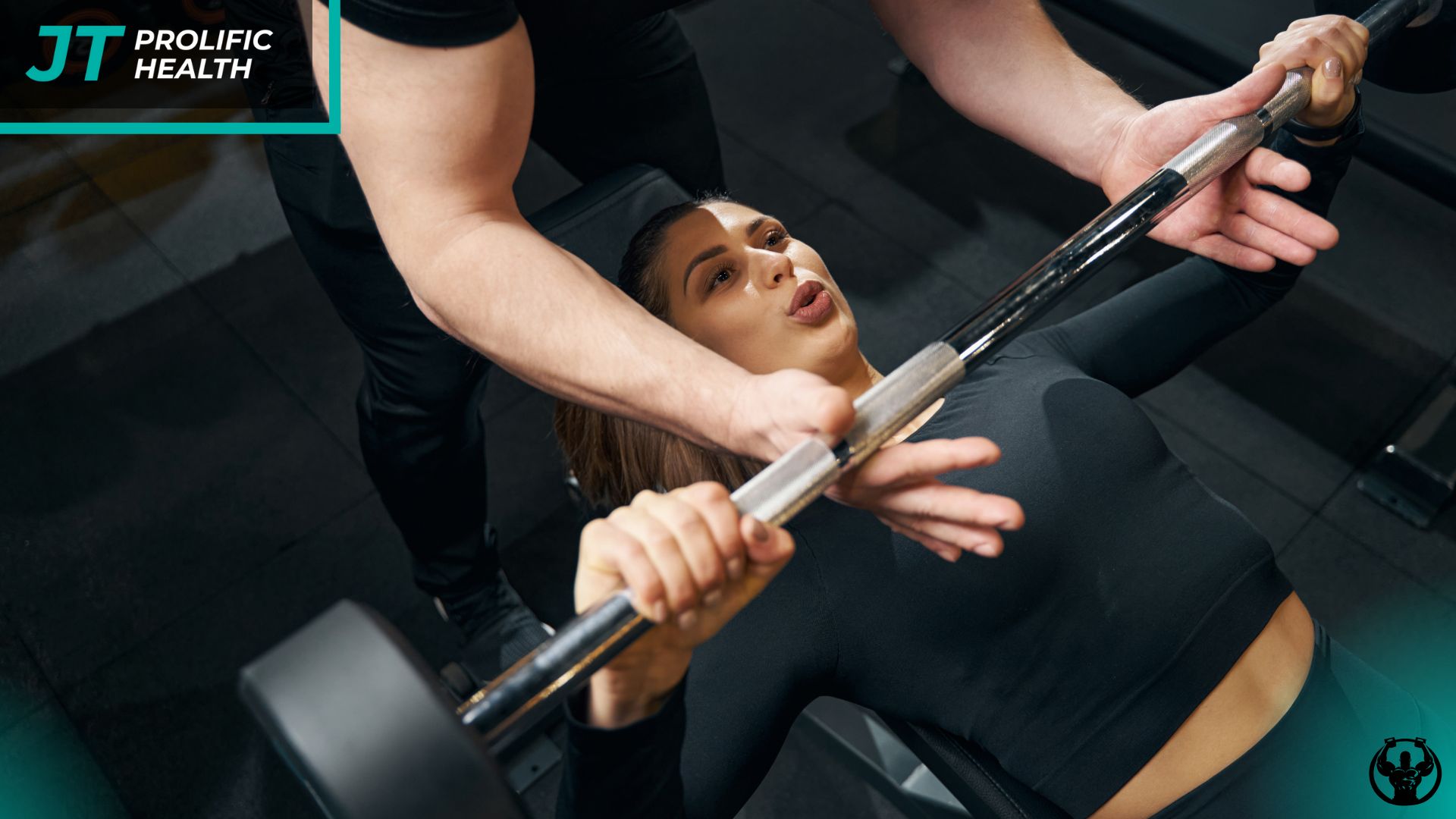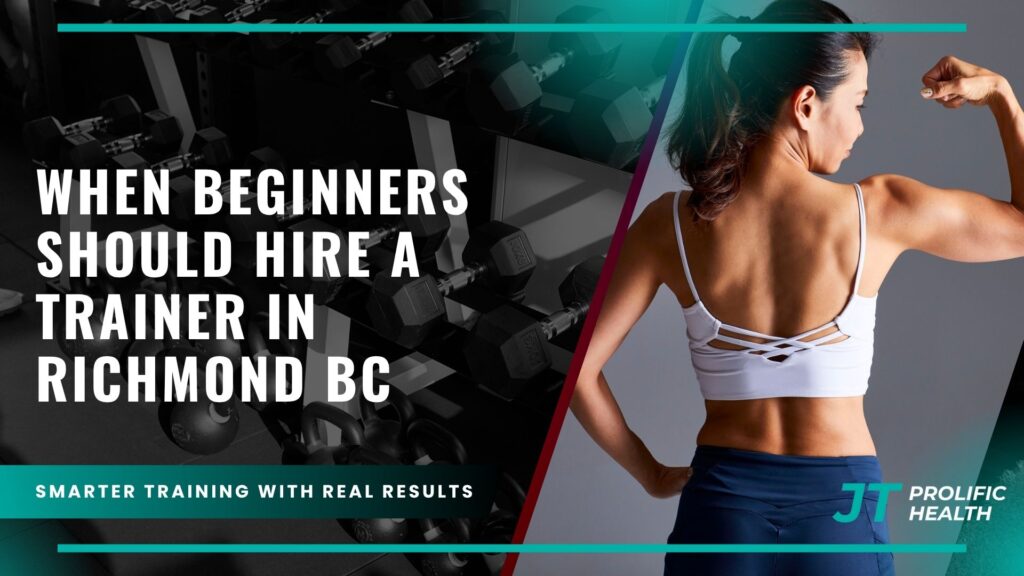Starting a fitness journey can feel overwhelming, especially when you’re unsure about the right time to seek professional guidance. For beginners in Richmond, BC, the decision of when to hire a personal trainer often comes down to recognizing key moments in their fitness development where expert support can make the difference between success and frustration.
Many newcomers to fitness believe they need to reach a certain fitness level before working with a trainer, but this misconception can actually hinder their progress. The reality is that personal trainers are specifically equipped to work with individuals at every stage of their fitness journey, particularly those just beginning. Understanding when to make this investment can accelerate your results while preventing common pitfalls that derail many fitness beginners.
Richmond’s diverse fitness landscape offers numerous options for personal training, from boutique studios to comprehensive fitness centers. However, knowing when you’re ready to take this step requires honest self-assessment of your current situation, goals, and the challenges you’re facing. Whether you’re dealing with time constraints, lack of knowledge, motivation issues, or specific health concerns, there are clear indicators that signal it’s time to seek professional guidance.
The investment in personal training during the early stages of your fitness journey can establish proper movement patterns, prevent injuries, and create sustainable habits that last a lifetime. Rather than viewing personal training as a luxury reserved for advanced fitness enthusiasts, beginners should consider it a strategic investment in their long-term health and success. The key is recognizing the specific circumstances and timing that make this investment most valuable for your unique situation.
Key Takeaways
For additional context, see this comprehensive guide.
- Immediate Start Benefits: Beginners gain the most from personal training when they start immediately, as trainers can establish proper form and movement patterns from day one, preventing the development of bad habits that are harder to correct later.
- Injury Prevention Focus: New exercisers should consider hiring a trainer before experiencing pain or injury, as professional guidance significantly reduces the risk of common beginner mistakes that lead to setbacks.
- Goal-Specific Timing: Those with specific objectives like weight loss, strength building, or preparing for events should engage a trainer early in their planning process to create structured, progressive programs tailored to their timeline.
- Motivation and Accountability: Beginners struggling with consistency or motivation should hire a trainer as soon as they recognize these patterns, as waiting often leads to further delays and decreased confidence.
- Complex Health Considerations: Individuals with pre-existing conditions, past injuries, or age-related concerns should prioritize professional guidance before beginning any exercise program to ensure safety and effectiveness.
- Knowledge Gap Recognition: When beginners feel overwhelmed by conflicting fitness information or unsure about exercise selection and progression, immediate trainer consultation prevents confusion and wasted effort.
- Plateau Prevention: Rather than waiting to hit a plateau, beginners benefit from trainer expertise in program design that anticipates and prevents stagnation through proper progression strategies.
Understanding the Beginner’s Fitness Journey

For additional context, see detailed information on this topic.
The beginning stages of a fitness journey are characterized by enthusiasm mixed with uncertainty. New exercisers often experience a honeymoon period where motivation runs high, but this initial excitement can quickly fade when faced with the complexity of exercise selection, proper form, and program design. Understanding this natural progression helps identify optimal timing for professional intervention.
During the first few weeks of independent exercise, beginners typically encounter several common challenges. These include uncertainty about which exercises to perform, confusion about proper form and technique, difficulty understanding how to progress their workouts, and struggles with creating a sustainable routine. While some individuals successfully navigate these challenges independently, many find themselves stuck or, worse, developing habits that limit their progress or increase injury risk.
The learning curve for fitness extends beyond just physical exercises. Beginners must also understand concepts like progressive overload, recovery principles, nutrition timing, and how to listen to their bodies. This multifaceted learning process can feel overwhelming, leading many to either give up entirely or continue with ineffective routines that fail to produce desired results.
Richmond’s fitness community recognizes these common beginner challenges, which is why many local trainers specialize in working with newcomers to exercise. These professionals understand that the foundation built during the initial months of a fitness journey often determines long-term success. For those seeking guidance on finding qualified professionals, our comprehensive guide to selecting trainers provides valuable insights into making this important decision.
Immediate Start Scenarios: When Day One Training Makes Sense


Certain circumstances make hiring a personal trainer from the very beginning of your fitness journey not just beneficial, but essential. These immediate start scenarios often involve safety concerns, specific goals with tight timelines, or personal factors that significantly impact exercise selection and progression.
Individuals returning to exercise after extended periods of inactivity represent one of the most important immediate start categories. Whether you’ve been sedentary for months or years, your body requires careful reintroduction to physical activity. A trainer can assess your current fitness level, identify potential limitations, and design a progressive program that rebuilds your fitness foundation safely. This approach prevents the common mistake of doing too much too soon, which often leads to injury or burnout.
People with specific, time-sensitive goals also benefit from immediate trainer engagement. If you’re preparing for a wedding, planning a hiking trip, or have committed to a fitness challenge, waiting weeks or months to seek professional guidance can compromise your ability to achieve these objectives safely and effectively. Trainers excel at reverse-engineering goals, working backward from your target date to create realistic, achievable milestones.
Those dealing with past injuries or chronic conditions should prioritize professional guidance from day one. While many people assume they need medical clearance before working with a trainer, experienced professionals can actually work alongside healthcare providers to ensure exercise programs complement medical treatment. This collaborative approach often accelerates recovery while building overall fitness.
Age-related considerations also support immediate trainer engagement. Adults over 40 beginning fitness routines, teenagers learning proper exercise habits, or seniors starting exercise programs all benefit from professional guidance that addresses their unique physiological needs and limitations. The investment in proper instruction from the beginning often prevents issues that could take months to correct later.
Recognizing Personal Readiness Indicators


Beyond external circumstances, personal readiness indicators often signal the optimal time to hire a trainer. These internal cues relate to your mindset, commitment level, and honest assessment of your current approach to fitness. Recognizing these indicators requires self-awareness and honesty about your fitness journey progress.
Motivation fluctuations represent one of the clearest readiness indicators. If you find yourself starting and stopping exercise routines repeatedly, struggling to maintain consistency for more than a few weeks, or feeling unmotivated despite having clear fitness goals, these patterns suggest you would benefit from professional support. Trainers provide external accountability and motivation that can bridge the gap between intention and action.
Confusion about exercise selection and progression often indicates readiness for professional guidance. When you spend more time researching workouts than actually exercising, feel overwhelmed by conflicting information, or find yourself randomly selecting exercises without understanding their purpose, a trainer can provide clarity and direction. This confusion often leads to analysis paralysis, where the abundance of information becomes paralyzing rather than helpful.
Lack of visible progress despite consistent effort suggests it’s time to seek professional input. While beginners should expect some trial and error, prolonged periods without seeing changes in strength, endurance, or body composition indicate potential issues with program design, execution, or progression. Trainers can quickly identify these issues and make necessary adjustments.
Fear or anxiety about exercising, particularly in gym environments, represents another important readiness indicator. Many beginners feel intimidated by fitness facilities or worry about exercising incorrectly in public. A trainer can provide the confidence and knowledge needed to overcome these psychological barriers. For those specifically concerned about building confidence through exercise, learning about how training builds self-assurance can provide additional motivation to take this step.
Goal-Specific Timing Considerations
Different fitness goals require different timing strategies when it comes to hiring a personal trainer. Understanding how your specific objectives influence optimal trainer engagement timing can help you make more informed decisions about when to invest in professional guidance.
Weight loss goals often benefit from immediate trainer involvement, particularly when significant amounts of weight need to be lost or when previous attempts have been unsuccessful. Trainers bring expertise in both exercise programming and lifestyle modification that accelerates weight loss while ensuring the process remains healthy and sustainable. They can also help navigate the inevitable plateaus and motivation challenges that accompany longer-term weight loss journeys.
Strength building objectives typically require professional guidance from the beginning, especially for those unfamiliar with resistance training principles. Proper form in strength exercises is crucial for both safety and effectiveness, and these movement patterns are much easier to learn correctly from the start than to correct after developing poor habits. Additionally, strength progression requires systematic planning that trainers are specifically trained to provide.
Athletic performance goals, whether for recreational sports or competitive events, benefit from trainer involvement during the planning stages. Sports-specific training requires understanding of movement patterns, energy systems, and periodization principles that most beginners lack. Starting with a trainer ensures your preparation aligns with your sport’s demands and timeline.
General health and fitness maintenance goals offer more flexibility in timing, but beginners often underestimate the complexity of creating balanced, progressive programs. Even seemingly simple goals like “getting in shape” or “feeling healthier” require understanding of cardiovascular training, strength development, flexibility, and recovery principles that trainers can teach efficiently.
Rehabilitation and injury prevention goals should always involve professional guidance from the beginning. Whether you’re recovering from an injury, dealing with chronic pain, or trying to prevent recurring issues, trainers with appropriate certifications can design programs that address these concerns while building overall fitness. For insights into what qualifications to look for, understanding essential trainer certifications can guide your selection process.
Overcoming Common Hesitations and Barriers
Many beginners recognize they could benefit from personal training but hesitate due to various perceived barriers. Understanding and addressing these common concerns can help you make decisions based on facts rather than misconceptions or unfounded fears.
Cost concerns represent the most frequently cited barrier to hiring a personal trainer. While training does require financial investment, beginners often fail to consider the long-term costs of ineffective exercise, injuries from poor form, or repeatedly starting and stopping fitness routines. When viewed as an investment in long-term health and efficiency, personal training often proves more cost-effective than alternative approaches.
Many beginners worry they’re “not fit enough” to work with a trainer, but this concern reflects a fundamental misunderstanding of what personal trainers do. Trainers are specifically educated to work with individuals at all fitness levels, and many prefer working with beginners because they can establish proper foundations from the start. Your current fitness level is exactly why you need professional guidance, not a reason to delay it.
Intimidation about working with a fitness professional affects many newcomers to exercise. This anxiety often stems from media portrayals of trainers as demanding or judgmental, but professional trainers understand that their success depends on creating supportive, encouraging environments. Most trainers entered the field because they genuinely enjoy helping people achieve their goals.
Time constraints frequently prevent beginners from considering personal training, but this barrier often reflects inefficient use of available exercise time. A trainer can help you maximize limited time by designing efficient workouts and teaching you to exercise effectively independently. The time invested in learning proper techniques often pays dividends in more effective future workouts.
Uncertainty about trainer selection can paralyze decision-making, especially in markets like Richmond with numerous options. However, most reputable trainers offer consultation sessions or trial workouts that allow you to assess compatibility before making long-term commitments. Additionally, understanding warning signs to avoid can help you navigate the selection process more confidently.
The Prolific Health Approach to Beginner Training
At Prolific Health, we understand that every beginner’s journey is unique, requiring personalized approaches that respect individual starting points, goals, and circumstances. Our philosophy centers on meeting clients where they are rather than where we think they should be, creating supportive environments that foster long-term success rather than short-term dramatic changes.
Our beginner-focused programs emphasize education alongside exercise, ensuring clients understand not just what they’re doing but why they’re doing it. This educational component empowers beginners to make informed decisions about their fitness routines, even when training independently. We believe that informed clients become more successful clients, as understanding promotes adherence and motivation.
Safety remains our top priority when working with beginners, particularly those returning to exercise after extended breaks or dealing with previous injuries. Our trainers conduct thorough assessments before designing programs, identifying potential limitations or concerns that might affect exercise selection. This careful approach prevents setbacks while building confidence in our clients’ abilities.
We recognize that beginners often struggle with consistency and motivation, so our programs incorporate accountability measures and progress tracking that help maintain momentum during challenging periods. Regular check-ins, goal adjustments, and celebration of small victories create positive reinforcement cycles that support long-term behavior change.
Our team stays current with the latest research in exercise science and behavior modification, ensuring our methods reflect evidence-based practices rather than fitness trends. This commitment to ongoing education allows us to provide beginners with reliable, effective guidance that produces sustainable results. We also understand that lifestyle factors significantly impact fitness success, which is why our approach includes guidance on comprehensive lifestyle modifications that support exercise goals.
Frequently Asked Questions
How soon should a complete beginner start working with a personal trainer?
Complete beginners benefit most from starting with a trainer immediately, as this allows them to learn proper form and movement patterns from day one. Waiting to “get in shape first” often leads to developing bad habits that are harder to correct later.
What if I can only afford a few personal training sessions?
Even a few sessions can be incredibly valuable for beginners. Focus on learning fundamental movement patterns, proper form for basic exercises, and understanding how to progress your workouts safely. Many trainers can also design programs for you to follow independently between sessions.
Should I wait until I’m motivated before hiring a trainer?
Actually, lack of motivation is one of the best reasons to hire a trainer immediately. Professional trainers provide external accountability and motivation that can help you push through periods of low motivation while building internal drive.
How do I know if a trainer is right for beginners?
Look for trainers who emphasize education, demonstrate patience, and have experience working with your specific situation. Good beginner trainers focus on teaching proper form rather than just pushing you through workouts.
Is personal training necessary if I’m following online workout programs?
While online programs can be helpful, they can’t provide real-time form correction, personalized modifications, or accountability that in-person training offers. This is especially important for beginners who may not recognize when they’re performing exercises incorrectly.
What should I expect in my first session with a personal trainer?
Your first session typically includes a fitness assessment, discussion of your goals and health history, and introduction to basic movements. Don’t expect an intense workout immediately – good trainers prioritize understanding your needs first.
How long should beginners work with a personal trainer?
This varies based on individual goals and learning pace, but most beginners benefit from at least 8-12 sessions to learn fundamental skills. Some continue longer for ongoing motivation and program progression, while others transition to independent exercise with periodic check-ins.
Can personal trainers help with nutrition and lifestyle changes?
Many personal trainers can provide general guidance on nutrition and lifestyle factors that support fitness goals, though they cannot provide detailed meal plans unless they have additional certifications. They can, however, help you understand how various lifestyle factors impact your exercise performance and results.
Conclusion
The decision of when to hire a personal trainer as a beginner ultimately comes down to recognizing that professional guidance can accelerate your progress while preventing common pitfalls that derail many fitness journeys. Rather than viewing personal training as something to pursue after achieving a certain fitness level, beginners should consider it a strategic investment in building a strong foundation for long-term success.
The optimal timing varies based on individual circumstances, but several clear indicators suggest immediate professional guidance would be beneficial. These include safety concerns related to past injuries or health conditions, specific goals with defined timelines, persistent motivation or consistency challenges, and confusion about exercise selection and progression. Recognizing these indicators early can save months of frustration and potential setbacks.
For busy professionals in the Richmond area, understanding how trainers support demanding schedules can provide additional perspective on making this investment work within your lifestyle constraints. The key is finding approaches that complement rather than complicate your existing commitments.
Remember that the investment in personal training during your beginner phase pays dividends throughout your entire fitness journey. The proper movement patterns, exercise knowledge, and healthy habits you develop with professional guidance become the foundation for decades of successful independent exercise. The question isn’t whether you can afford to hire a trainer, but whether you can afford not to invest in proper guidance during this critical learning phase.
Taking action sooner rather than later often proves more beneficial and cost-effective than waiting for the “perfect” time to begin. Your fitness journey starts with a single decision, and for many beginners in Richmond, that decision to seek professional guidance marks the beginning of lasting transformation and lifelong healthy habits.




